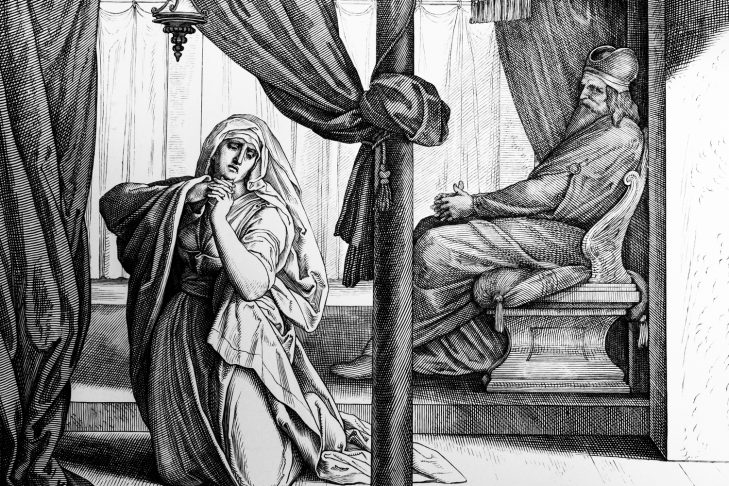1 Samuel 1:1-2:11
Forgive these tears -
I can't stop them anymore.
My sadness is an ocean
so deep I cannot eat,
so deep I cannot sleep.
Awake at night I hear them
sometimes, in the room next door -
him and her -
the other woman.
It had to be, he said.
And I understand.
But that doesn't help.
You'll always be my first love, he says.
And I believe him.
But that doesn't help either.
For my problem is not jealousy -
my problem is me.
Who is the other woman?
She, or me?
Who of us fulfills her purpose
as woman and as wife?
Who has done her duty -
and who has had to be replaced?
Are her tauntings true?
Sometimes I think they are
and I cry and I cry
and I can't tell him why
because he wouldn't understand.
Am I not more than sons? he says.
Of course he is -
but that doesn't help.
I love you even so, he says.
I know -
but that doesn't help either.
For nothing can help me -
nothing
but YOU.
Lord, you are the island
in my stormy ocean,
the rock I can hold on to,
the only hope for me.
You lift up the weak,
you feed the hungry,
you turn the barren woman
into a mother.
Your power can turn
the world upside-down.
Turn my world upside-down.
Change this sadness into joy,
and my begging into thanks.
Fill my empty rooms
with children's laughter
and give my life purpose again.
But not for me -
no, for your glory,
that your power can be seen
on a small, weak thing like me.
And I will give you all I have,
my greatest treasure,
my most valued gift:
the child
that you are giving me.
________________________________________________________
[January 2012]
I was trying to imagine what it might feel like for Hannah to be one of two wives - especially because she was the one who couldn't have children. In those days, a central part of a woman's life was bearing children. There's still cultures where women mainly exist as "baby machines" (extremely said). I can imagine that Elkanah married Peninnah because Hannah couldn't have children, and sort of "added" her so that he'd have heirs. Anyway, those were my background thoughts to this poem. ^^
I based a lot around Hannah's prayer in 1 Sam 2 - which is very similar to the Magnificat (Mary's prayer) in the Gospel of Luke: God turns the world around, He does things differently from our expectations, He is not like us. To the world, Hannah was a failure: a woman who couldn't fulfill her purpose in life, namely that of bringing children into the world. But God loved her - and He loves all of us too, even if the world does not accept us. God loves broken people - and He can make them whole.
